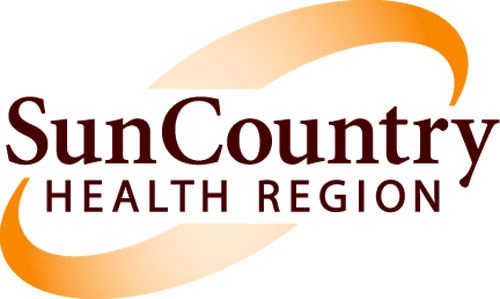The rotating strike action by the Health Sciences Association of Saskatchewan (HSAS) hit the Sun Country Health Region on Thursday, as the union continued to protest the "final offer" tabled by the employers representative, SAHO (Saskatchewan Associa
The rotating strike action by the Health Sciences Association of Saskatchewan (HSAS) hit the Sun Country Health Region on Thursday, as the union continued to protest the "final offer" tabled by the employers representative, SAHO (Saskatchewan Association of Health Organizations).
Due to the essential services legislation, only a handful of Sun Country employees represented by HSAS withdrew their services on Thursday, and no appointments were cancelled as a result of the job action.
Sun Country received no direct notice of the job action, and was not notified by the union which employees would not be at work.
"HSAS has not responded to our requests to discuss or negotiate our essential services plans," said Don Ehman, vice-president of Human Resources. "We have activated our essential services plans to ensure patient safety. Under essential services legislation, overall, approximately 83 per cent of HSAS employees in Sun Country have been deemed essential."
The number might seem high to HSAS, he said, but in part it's due to all of Sun Country's ambulance staff being represented by HSAS. In other health regions, some ambulance staff are represented by other unions.
"We also have a lot of staff positioned in small, rural health facilities where they are deemed essential because there are so few of them," said Ehman.
Sun Country is confident it can continue to provide the essential services necessary for patient safety with these employees, he added.
Altogether there are 157 Sun Country employees represented by HSAS, in positions such as pharmacists, emergency medical services, addictions and mental health counsellors, social workers, dietitians, nutritionists, health educators, respiratory therapists, public health inspectors, therapists (occupational, physical, speech-language), home care assessors and others.
"Our plan is built on the need to provide service to the public, to ensure there is no danger to the life, health or safety of residents," said Ehman.
In the "final offer tabled by SAHO, the average wage increase would be 11 per cent over four years, with a general wage increase of 7.5 per cent over four years for all health sciences workers, plus additional market-based increases for about 85 per cent of workers. Some increases are as high as 22 per cent over four years.
This offer would make wage rates equal to or greater than the western Canadian average for all base classifications.
Added to the final offer also is a top-up to 75 per cent of wages in supplemental employee benefits for maternity-paternity or adoption leave; significant increases to shift and weekend hourly premiums which are competitive for similar work in western Canada; and a standby rate for emergency medical services for other than full-time workers will increase to $5 a hour.
In response to this offer, HSAS said the offer contained at least two hidden contract take-aways that would result in a salary loss of approximately three per cent for 500 HSAS professionals.
"When we pointed this out to them, assuming it was a mistake on their part, they finally confirmed in writing it was their intention all along to change that contract provision without telling us," said Cathy Dickson, president of HSAS.
The classification in question was in relation to 550 members who occupy senior positions, and who are guaranteed a wage level that is eight per cent above their base classification. This differential has been in place since the last contact was signed in 2005.
Another "take-away" was an unannounced reduction in the wage differential based on educational achievement.
